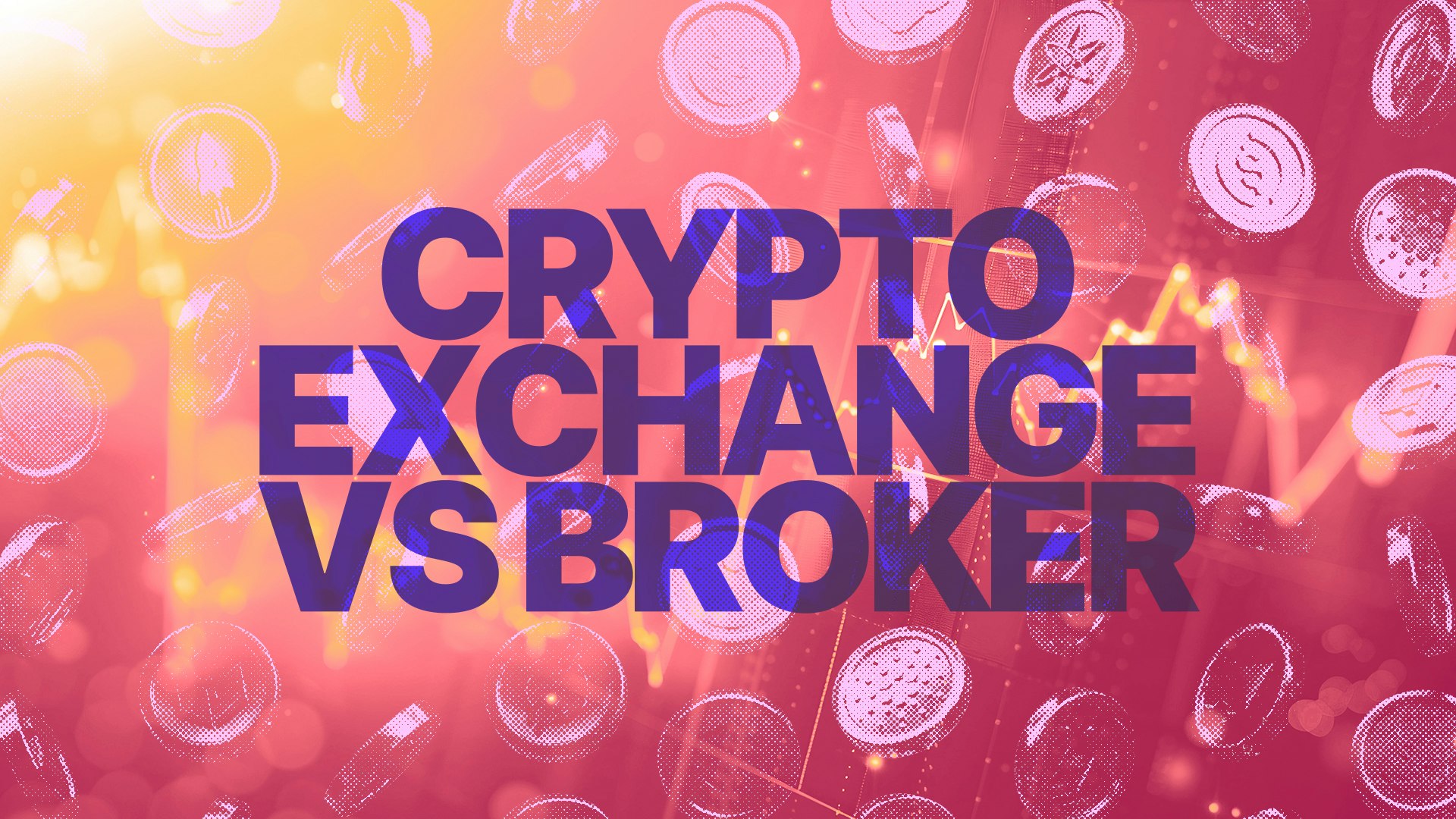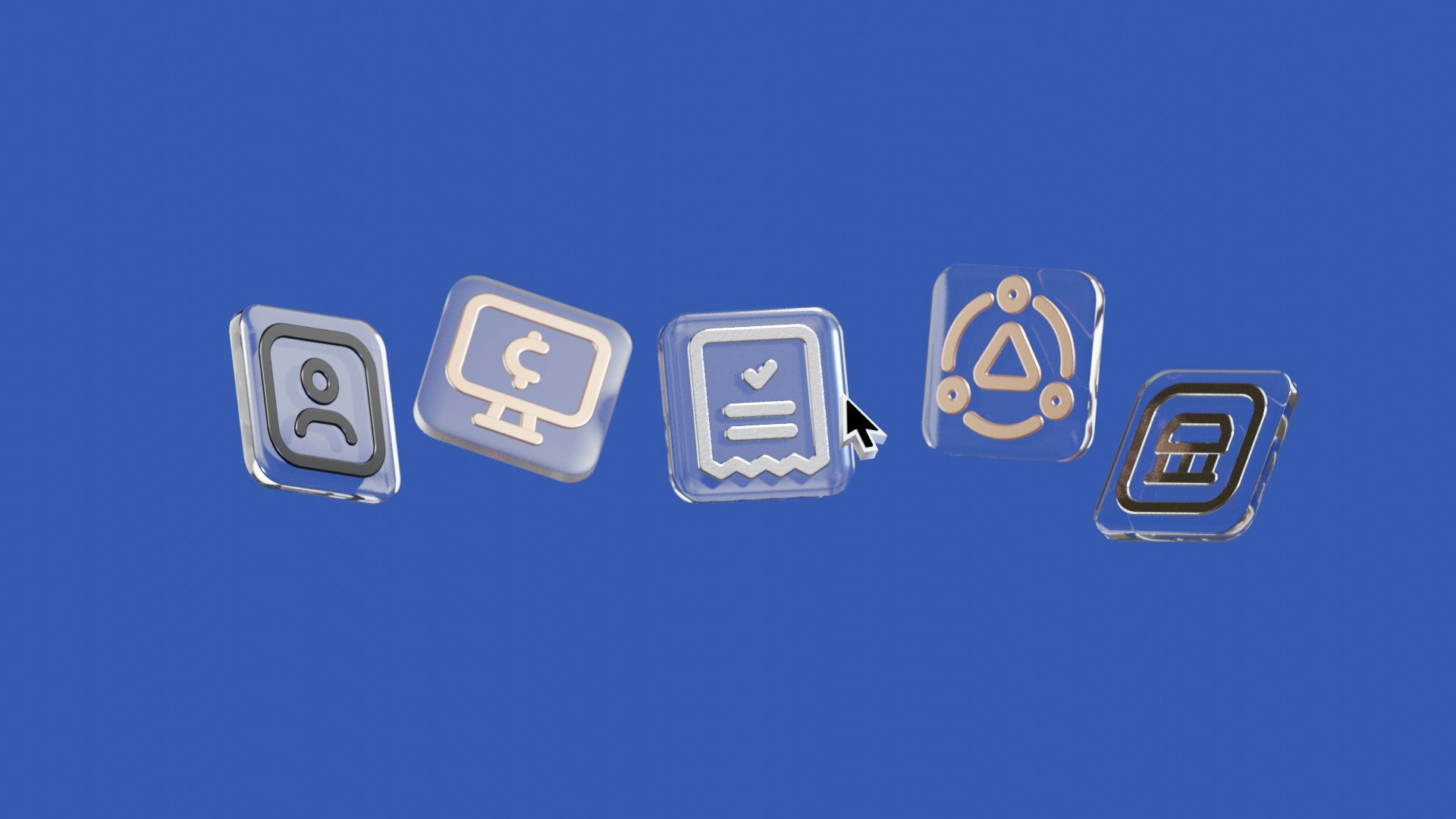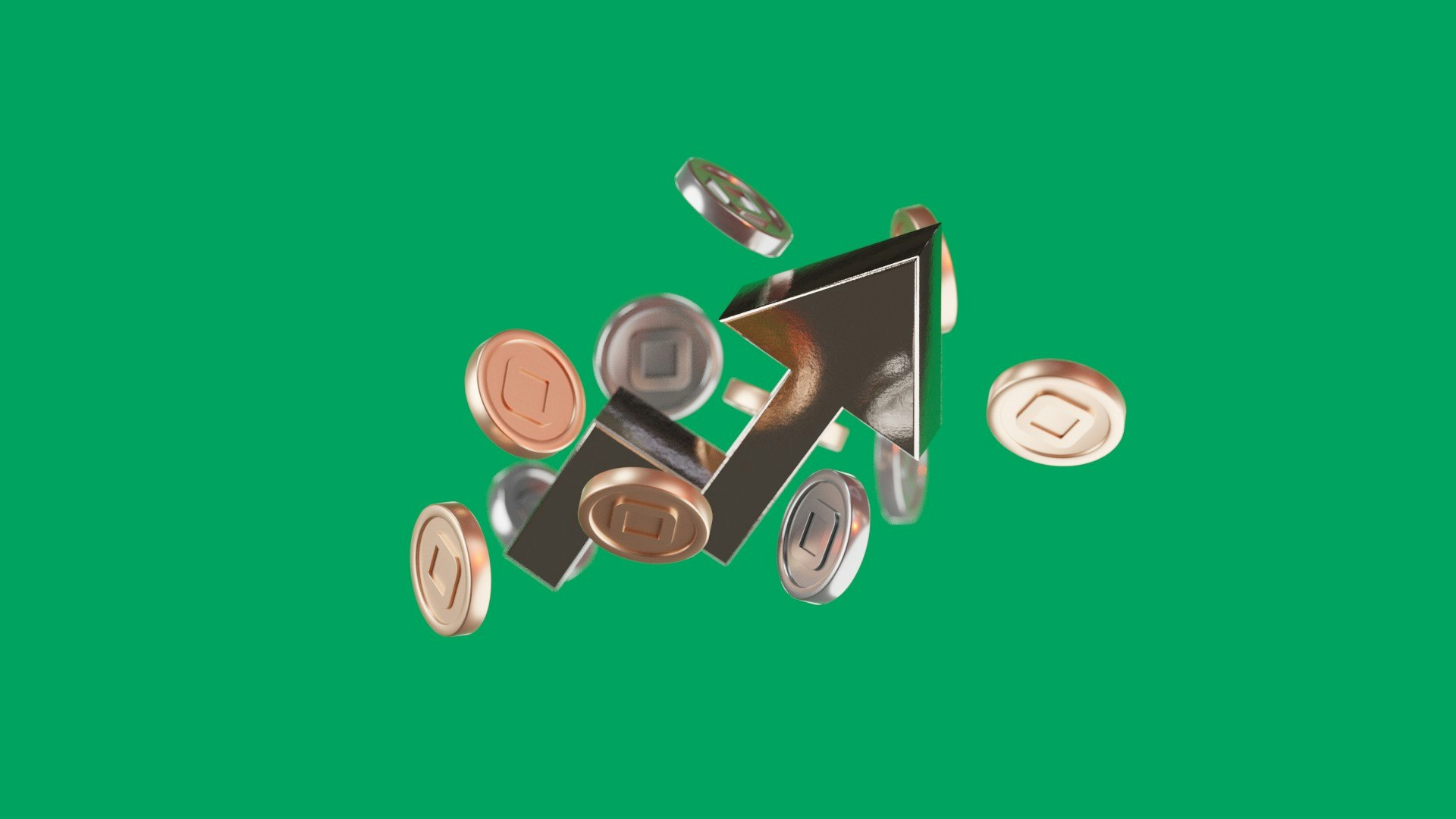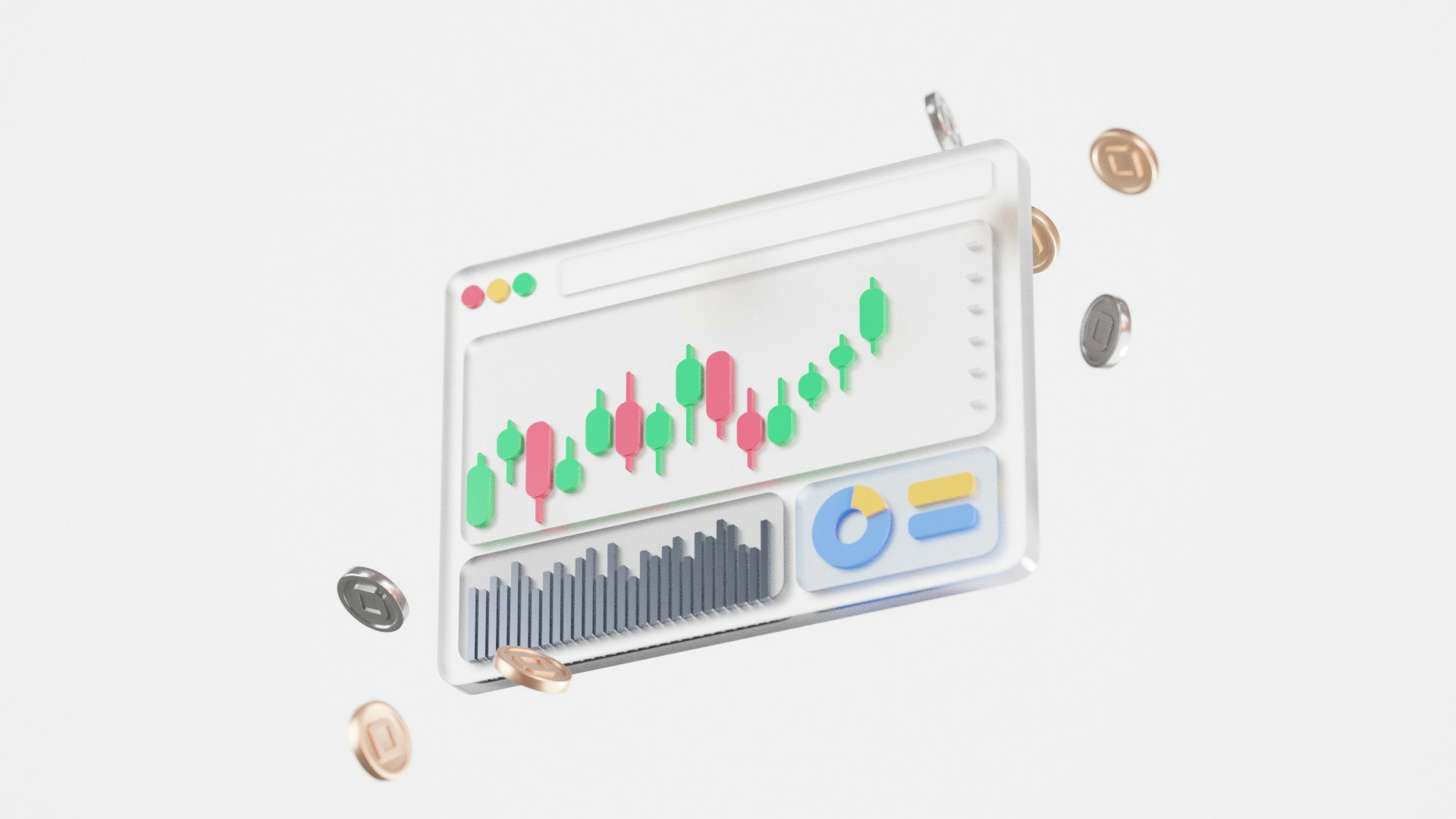Claim your free €20 Bitcoin bonus now! Just verify your ID. Weekly payouts every Friday! Don't invest unless you're prepared to lose all the money you invest.
What is a Crypto Exchange? What is a Broker?
A crypto exchange that you want to use might not be an exchange at all, it might be a broker. Here's the difference between crypto exchanges vs crypto brokers.
In this article...
- What is the difference between an exchange and a broker?
- The platform you are using might not be a true exchange
- Here's how to know the difference

What's a crypto exchange? What's a broker? If you are interested in trading cryptocurrencies, you might have heard of two different ways to do it. If you haven’t, then listen up, because this is an important knowledge nugget.
Crypto platforms tend to operate in two different ways. One way is operating as a crypto broker, the other way is operating as an exchange.
But what are they? And how do they differ? And which one is better for what you want to do with your digital assets? And how do you know which is which? In this article, we will break it down for you. So read on!
What is a cryptocurrency exchange?
A crypto exchange is a website or an app that lets you trade cryptocurrencies with other users directly. A crypto exchange, such as Independent Reserve, or Binance Australia, provides a platform where buyers and sellers can exchange cryptocurrencies based on the current market prices. To use an exchange, you have to follow the trading rules of the platform.
There are two different types of exchanges: Decentralised and centralised.
What is a centralised exchange?
A centralised crypto exchange is a website or an app that lets you buy and sell different kinds of digital assets, such as Bitcoin, Ethereum, XRP or even NFTs. You can also exchange one type of crypto for another, or use everyday money like Euro to buy crypto.
You need to create an account on the exchange and verify your identity before you can use it. The exchange also charges you some fees for using its services.
Some pros and cons of using a centralised crypto exchange are:
-
It is user friendly and has a lot of features, such as charts, news, and customer support.
-
It has a lot of cryptocurrency options, so you have a lot of choice when buying or selling cryptos.
-
A crypto key or password is a code that allows you to access and manage your crypto funds. It is like a lock that only you have the key to. When you buy or sell crypto, you need to enter your key or password to confirm the transaction.
If you forget your key or password when using a decentralised exchange, you may lose your crypto forever. However if you use a centralised exchange, there is a way to get access to your crypto back.
A centralised crypto acts more like a bank in some ways. You don’t have to store your private keys on your own device or wallet. The platform does it for you. You can reset your password if you forget it by contacting the customer support of the platform.
However there is a phrase in crypto: “Not your keys, not your coins”. This means that you have to trust the crypto exchange won’t go bankrupt or be hacked. But say if something happened to you, and your family needed to get access to your crypto. Then you could get access to funds on a centralised exchange.
-
It is not as private as a decentralised exchange, because the exchange knows who you are and what you do with your digital money. It can also share your information with the government or other parties if they ask for it.
-
You have to follow the rules of the exchange, like you would with normal money and a bank.
-
Crypto exchanges usually offer more advanced and innovative trading features and tools. You won’t need to know this as a beginner yet, but once you get more comfortable with crypto culture, you will be able to look into things like margin trading, futures, options, and staking.
-
Crypto exchanges, such as CoinJar also have social and aspects, such as , and learn sections where you can follow what interests you.
-
You have to follow rules. Before choosing a crypto exchange, you should learn the trading rules and processes of the platform.
-
You should also compare their fees and commissions with other exchanges and the broker prices. You should also fully understand the risks involved in trading cryptocurrencies, such as price volatility, hacks, and thefts.
While protection is improving as the industry matures, criminals will be criminals and are always looking for a way to scam people. For example - even though online wallets are convenient, there is a risk that you may be a victim of a cyberattack.

What is a decentralised exchange?
A decentralised crypto exchange is a way of trading different kinds of crypto, without using a website or an app that controls your money. Instead, you can trade directly with other people who can trade cryptos with you directly too. Some unique features of using a decentralised crypto exchange are:
-
DeFi platforms are usually not in line with the local anti-money laundering and fraud regulations, in that you are not required to share personal information and transactions are not transparent or monitored.
-
You can trade with anyone, anywhere, anytime. You don’t have to follow the rules or regulations of the exchange or the government.
-
It is more difficult to use than a centalised exchange and has fewer features, such as charts, news, and customer support.
-
It has fewer cryptocurrencies, and fewer people using it, so you might not be able to swap with others if you are into more obscure cryptocurrencies.
What is a crypto broker?
A crypto broker is someone who helps you buy or sell cryptocurrencies with Euro or other fiat currencies. A crypto broker can be a company, platform, or individual who acts as a middleman between you and the crypto market.
To use a broker, you have to pay them a fee or a premium for their service.
Features of using a crypto broker
Like crypto exchanges, using a crypto broker has some benefits and drawbacks for users too.
-
They tend to offer a wide range of digital money options, with sometimes hundreds of coins to choose from.
-
They may comply with local laws and regulations, and verify your identity to prevent fraud. However some of the exchanges they use to process the transactions may not comply, and it is hard to know more information about this as they don’t tend to disclose who they use.
-
Brokers tend to charge relatively uncompetitive trading fees or spreads, which can add up if you trade frequently or in large amounts, seeing as they use exchanges to process the trades.
-
Because brokers use exchanges to buy crypto, you have to trust that the broker knows what they are doing and that they are using reputable exchanges.
So you want to be sure you trust that the broker has good alliances with sound exchanges.
Do I need a broker to buy crypto?
No, you do not need a broker to buy crypto. You can buy crypto directly from a crypto exchange. But you can also buy crypto from a crypto broker, which is an intermediary that helps you buy or sell cryptocurrencies at a fixed price, usually using fiat currencies or other cryptocurrencies.
However, the broker will use crypto exchanges that you didn’t choose yourself, and some of these could be overseas.
On the other hand, if you use a crypto exchange, your activity is not “farmed out” to third parties, the transaction is done on the crypto exchange that you have chosen to use.

Conclusion: What is a crypto exchange?
A crypto exchange and a crypto broker are two ways of buying and selling cryptocurrencies. Both crypto exchanges and brokers have their own advantages and disadvantages, depending on the user’s jurisdiction, needs, preferences, and goals.
Frequently asked questions
What is the difference between a broker and an exchange in cryptocurrency?
The difference between a broker and an exchange is that a broker is an intermediary that helps you buy or sell cryptocurrencies at a fixed price, while an exchange is a marketplace where you can trade cryptocurrencies with other users at a variable price. A broker usually charges a fee or commission for their service, while an exchange may charge a transaction fee or spread.
What are the three main types of crypto exchanges?
The three main types of crypto exchanges are centralised, decentralised, and a broker.
How do centralised and decentralised exchanges differ in terms of security and control when I'm investing in cryptocurrencies?
Centralised exchanges work similarly to traditional stock exchanges, acting as intermediaries to facilitate buying and selling digital assets. They typically have robust security features, such as KYC/AML compliance and custody of user funds, but are subject to regulations like those from the Securities and Exchange Commission.
Decentralised exchanges (DEXs), on the other hand, are peer-to-peer marketplaces with no central authority, offering more user control and privacy. However, DEXs can have lower trading volumes and may require users to manage their own crypto wallets, placing greater responsibility on the individual for protection.


Suggested Articles
ASI Merger: What is Happening With Fetch.ai (FET)?
Three AI companies have merged, but what does it mean for you?What is an Altcoin? What are Altcoins for?
The term altcoin is derived from two words: “alternative” and “coin.” It refers to any cryptocurrency other than Bitcoin.Bitcoin Mining Scam: What to Look Out For
The Bitcoin Mining Scam is a new online threat coming at us. Our compliance expert explains another sophisticated scam to look out for.Browse by topic

CoinJar Europe Limited (CRO 720832) is registered and supervised by the Central Bank of Ireland (Registration number C496731) for Anti-Money Laundering and Countering the Financing of Terrorism purposes only.
Apple Pay and Apple Watch are trademarks of Apple Inc. Google Pay is a trademark of Google LLC.
This site is protected by reCAPTCHA and the and apply.